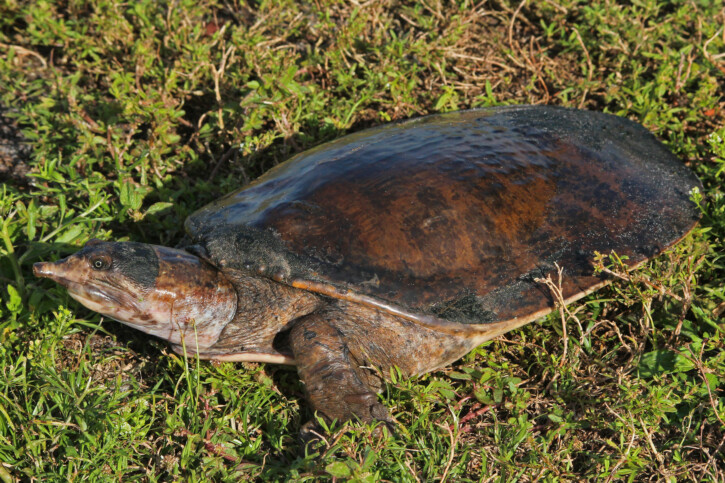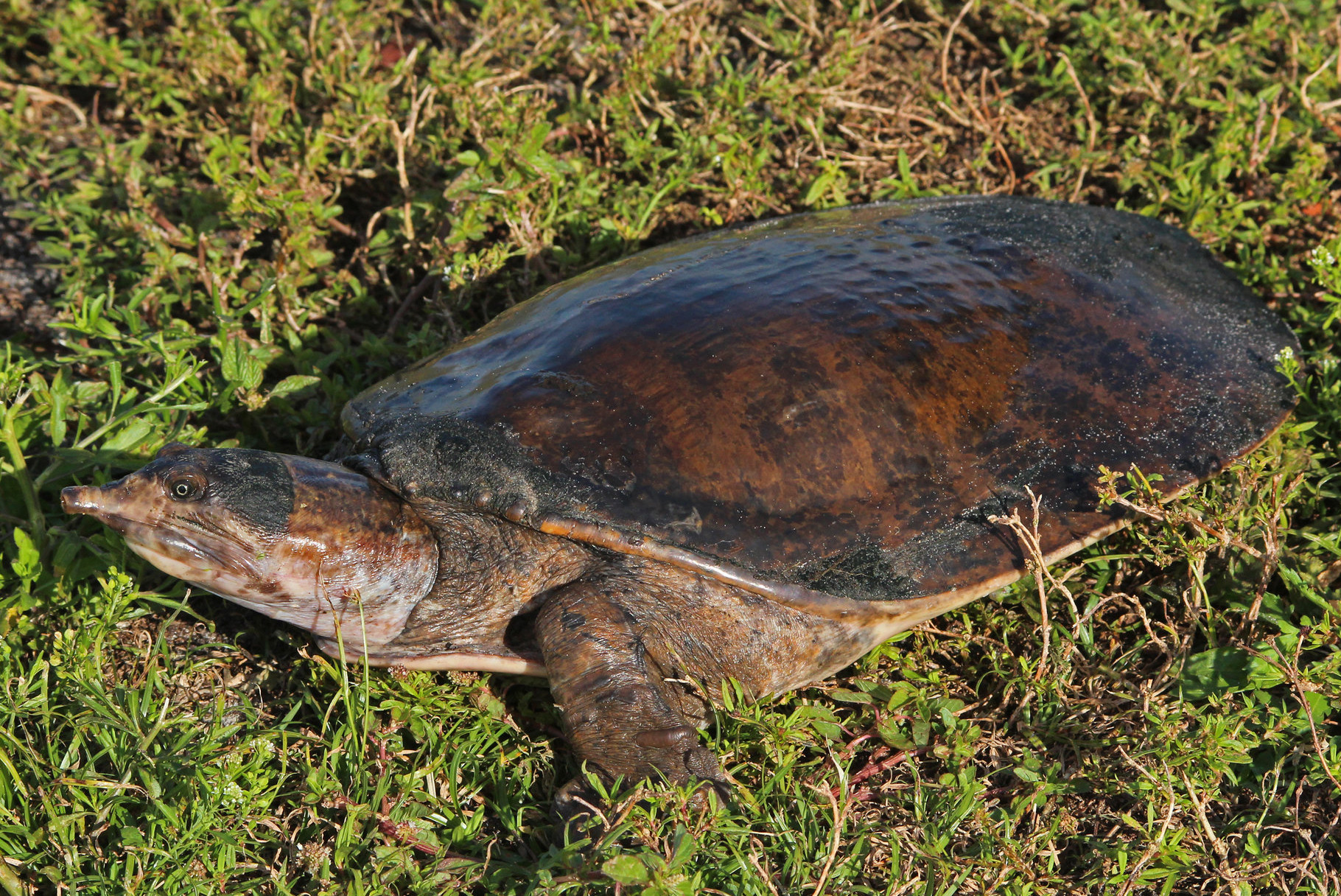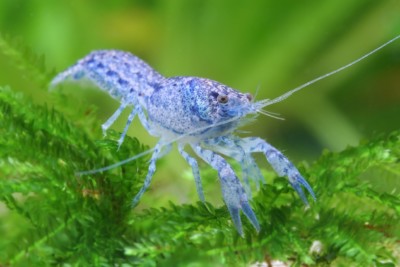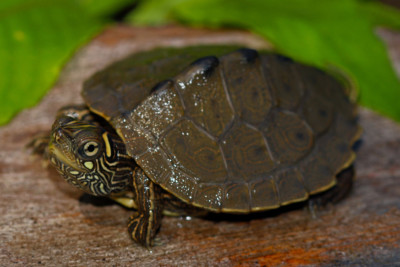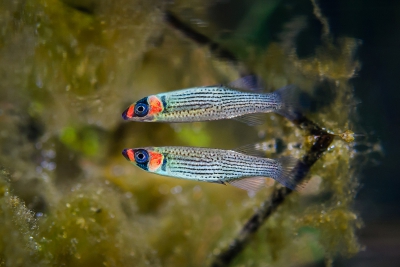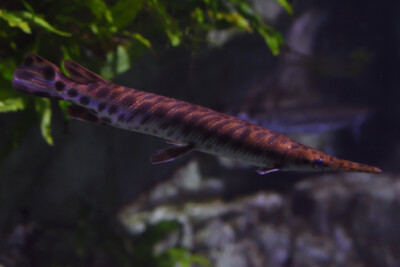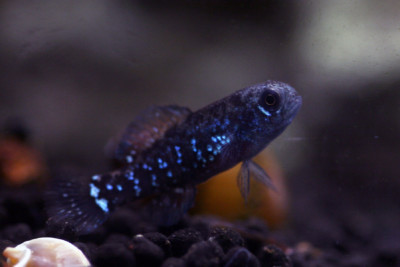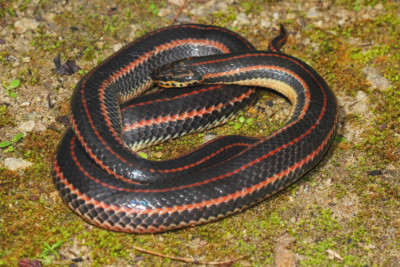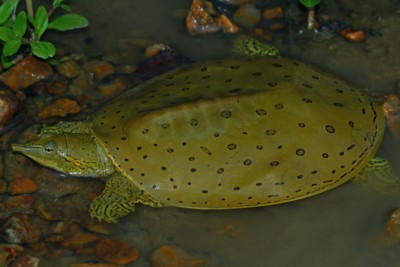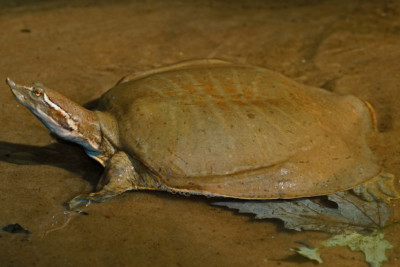Introduction
Apalone ferox, commonly known as florida softshell turtle, is a fresh water reptile from the North America.
This sheet is currently being prepared. The texts currently proposed come from our data model or are being drafted. To request priority for this content, you can write to us HERE.
Who is it?
How to recognize This reptile ?
The florida softshell turtle measures around 25 cm. The females are more imposing and some specimens can reach 60 cm. This reptile is unicolore with a predominantly marron body.
Sexual dimorphism
The female is bigger than the male.
Behaviour & Life cycle
-
Sociabilityliving in small groups
-
Way of livingdiurnal
-
VenomousNo
-
Dietnot specified
The florida softshell turtle is a reptile living in small groups naturally found on the bottom. This species is carnivorous .
Reproduction
-
Reproductionovipare qui enfouit ses œufs
-
PolygamyYes
-
Clutch size0 - 0 eggs
The florida softshell turtle is a reptile ovipare qui enfouit ses œufs. In this species, the dominant males are polygamous and reproduce each season with several females. This reptile protects its eggs from nearby predators.
Risks for humans
-
VenomousNo
-
BiteYes
This species can attack if it feels threatened. It is important to be particularly vigilant especially during dives or fishing sessions.
Origin and distribution
What is its habitat?
Natural environment characteristics
-
Temperature5 - 30 °C
Biotope presentation
The acidification of water comes from the decomposition of plants. This phenomenon changes the color of the water, which tends to turn brown. In some areas particularly rich in organic matter, the water is so dark that it is called "black water".
The florida softshell turtle is most often found at a depth between 0m and 4m. However, it is not impossible to find this species at other depths. This animal evolves in areas characterized by a strong presence of vegetation (aquatic and marsh plants, decaying organic matter, roots...).
This species lives near large roots, in which it can find refuge in case of danger. This type of habitat is often found not far from the banks.
Species of the same biotope
To go further
Sources & Contributions
Participation & Validation
The Fishipedia team and specialist contributors are committed to providing high-quality content. However, although the information comes from scientific sources or testimonials from specialists, the cards may contain inaccuracies.

Adrien Falzon
Translation
Translation done with the valuable contribution of our translators, who make this information available to a wider audience. We sincerely thank them for their commitment.
Scientific partners
Tags
Same genus
Species of the same biotope
